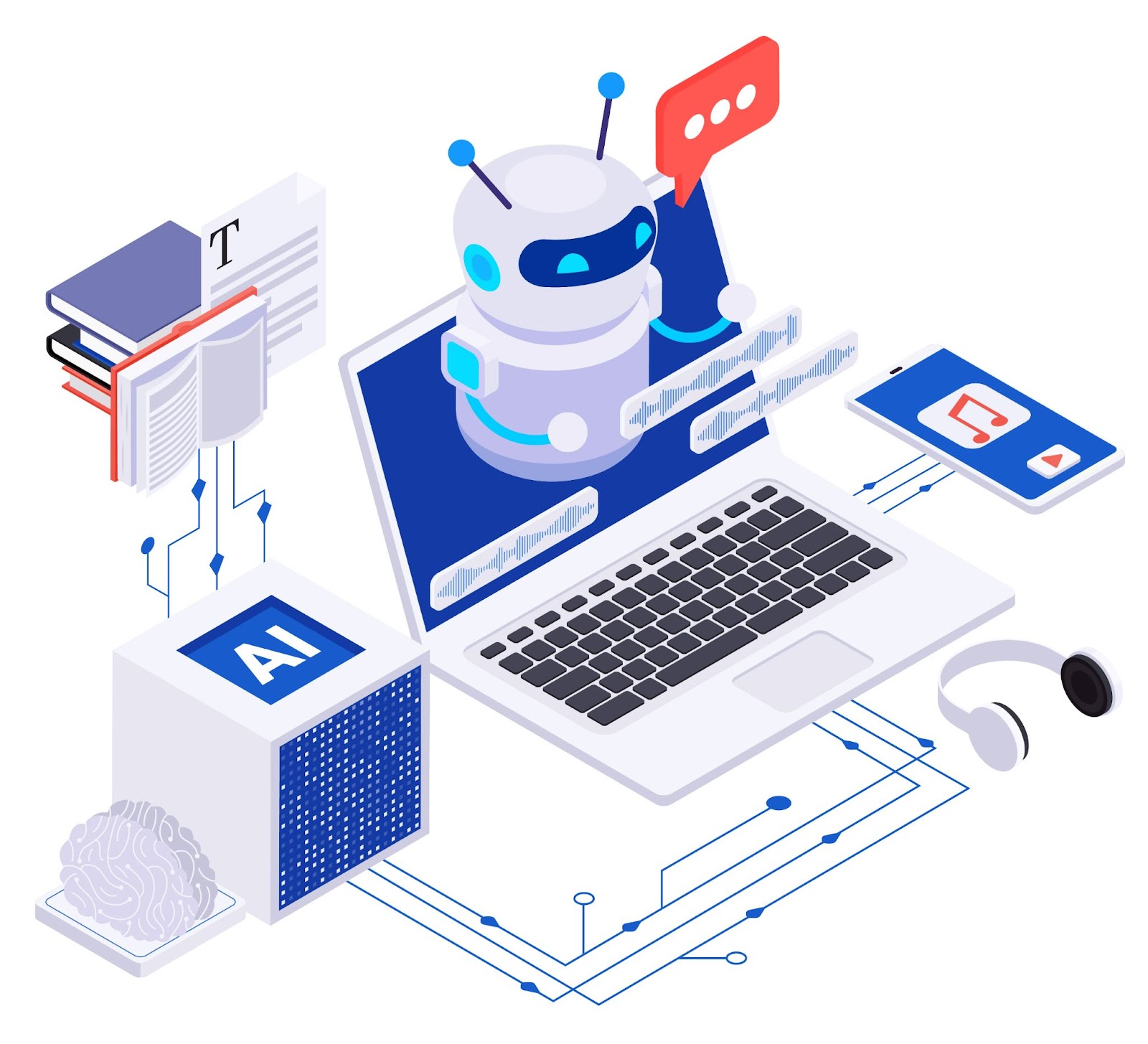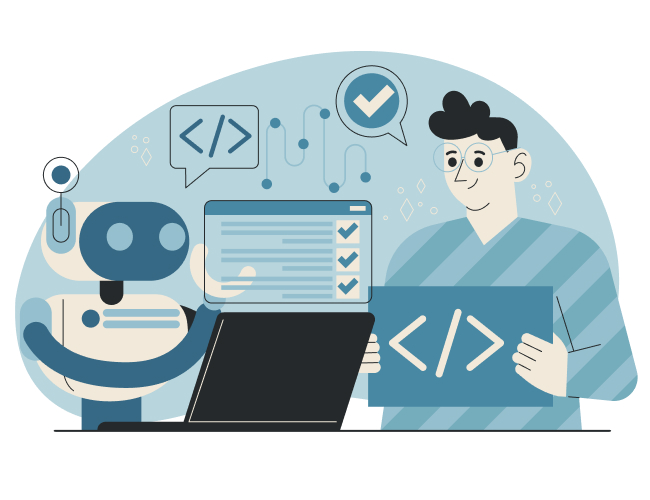AI-Powered Development: How GPT-4 and Beyond Are Redefining Custom Software Solutions
The world of software development is evolving fast. The role of AI technologies is going to be central. The new generation of AI no longer serves just to speed up routine tasks but participates actively in how we build, customize, and adapt software. Let’s go into detail on how GPT-4 and other AI tools are going to change custom software development along multiple dimensions, from automating routine tasks to providing personalized solutions.
Automation of Development Tasks

Perhaps most immediately apparent, the benefit of using AI in software development involves automating monotonous and time-consuming tasks. For instance, starting with GPT-4, we will perform tasks such as code generation and debugging much faster, which usually takes too much time for a human developer.
Indeed, code writers often have to write a thousand lines of boilerplate code, delicate syntax differences, and search for hard-to-find bugs in complex systems. GPT-4, through the system of OpenAI Codex, automates a great deal of this. It can generate functional code snippets, analyze pre-existing code for bugs, and even make suggestions about how performance could be improved, all of which greatly reduce development time.
Take bug detection, for example. It requires several iterations of testing and reviewing, which could drag through for days. AI lets you use machine learning models, possibly trained with millions of lines of code with previous error patterns, to rapidly find bugs and fix them. It makes the development cycle much quicker and the quality of the software better as it reduces human error.
With their tool Copilot, companies like GitHub have already used this GPT-4-based technology to automate coding and debugging. It really did make them speed up their development processes without compromising on quality. Automation tools save precious time that otherwise would have been utilized by the developers to focus more on higher-order problem-solving rather than tedious tasks.
Customized and Adaptive Software Solutions

This is yet another game-changing AI ability: personalizing software solutions. GPT-4 can process large volumes of user data and generate software that can adapt to different users’ needs and preferences. This personalization, in customer-centric sectors like e-commerce, entertainment, and healthcare, is worth its weight in gold.
Equally diverse is AI-driven e-commerce software that elicits customer behavior in response to previous purchases, browsing habits, and real-time interactions, eventually making product recommendations to suit the particular individual. This enables businesses to deliver highly focused shopping experiences, which would heighten customer satisfaction and heighten sales.
AI-driven software can inspect a patient’s medical history, treatment responses, and even real-time health metrics to come up with personalized suggestions for treatments or health plans. This goes further in improving the quality of care, and patient outcomes are better since there are more appropriate and timely interventions.
Examples of AI personalization include Netflix and Amazon. Both are enabled through AI algorithms, which recommend either content or products per user preference settings. This makes for a far more engaging experience, making them feel valued and noticed.
Integration with Existing Systems

Beyond those two elements of automation and personalization, AI also plays a very important integrative role in the current software systems. Companies in many different sectors have grown dependent on such advanced systems as CRM or ERP to handle their operations. Adding AI into the mix can further enhance these systems by providing features such as predictive analytics and real-time decision-making.
For example, GPT-4 can be implemented into CRM systems to automate customer support or offer more efficient user segmentation based on behavioral patterns. ERP systems tap into AI to analyze volumes of data in predicting inventory needs, optimizing supply chains, or improving financial forecasts.
With companies like Salesforce already integrating AI into their systems, the ability to keep up with customer relationships and sales processes is becoming increasingly effective. Incorporating AI into the current software will allow companies to make more intelligent, informed decisions faster.
Challenges and Ethical Considerations
However, like any disruptive technology, AI has its downside regarding many valid concerns about ethics. The largest issues revolve around data privacy, especially sensitive information like medical records or financial data. If AI systems are not managed properly, they can reveal vulnerabilities or handle personal information in not a very desirable way.
Then there is algorithmic bias: AI systems are only as good as the data they are trained on, after all. If biases of race, gender, and socioeconomic status lie hidden in that data, then the software might just start reinforcing those same biases. Softly codifying discrimination in hiring, lending, or even healthcare recommendations.
Addressing such issues requires transparency. Developers should allow AI models to train on diversified data and also provide internal decision-making processes understandable and accountable. In the practice of ethical AI development, adherence to industry standards like IEEE’s guidelines for ethical AI and strict governance policies related to data has become vital to the responsible use of AI in software development.
Conclusion
AI, especially with the advent of newer technologies such as GPT-4, has become a game-changer in bespoke software development. It is now pushing the boundary for everything from automating mundane jobs to crafting personalized user experiences.
That is where AI-driven development can drive efficiencies, but it can also unleash innovation, and those investments that companies make in these technologies today will give them a distinct competitive advantage in the near future.
Since AI is one of the most rapidly developing technologies, companies need to update themselves on recent trends and opportunities. Companies that grasp the nettle and integrate the powerful facility of AI proactively into the development process open themselves up to unimaginable levels of productivity and ingenuity, firmly positioning themselves as leaders in a rapidly changing industry.
![]()
Subscribe to us










